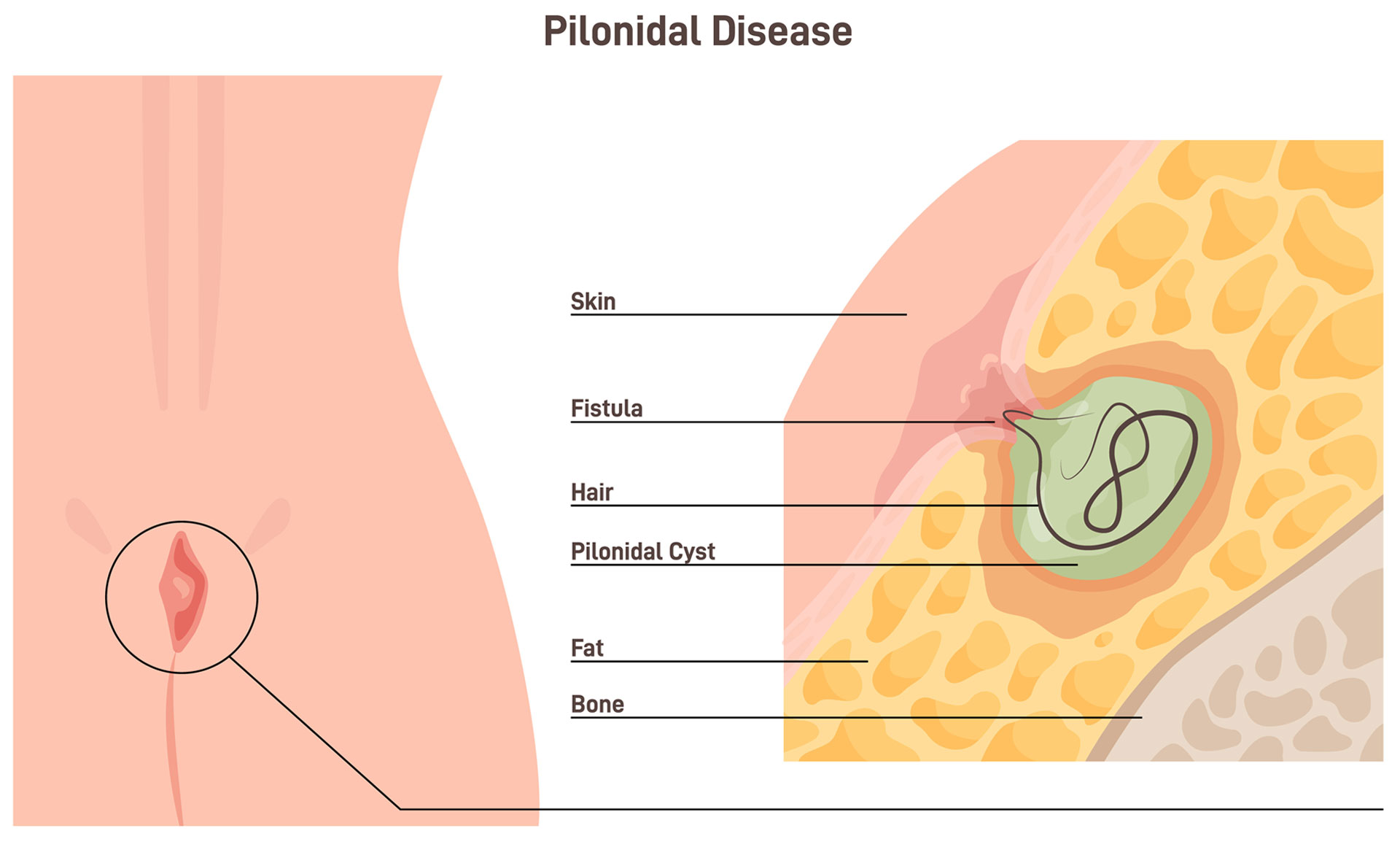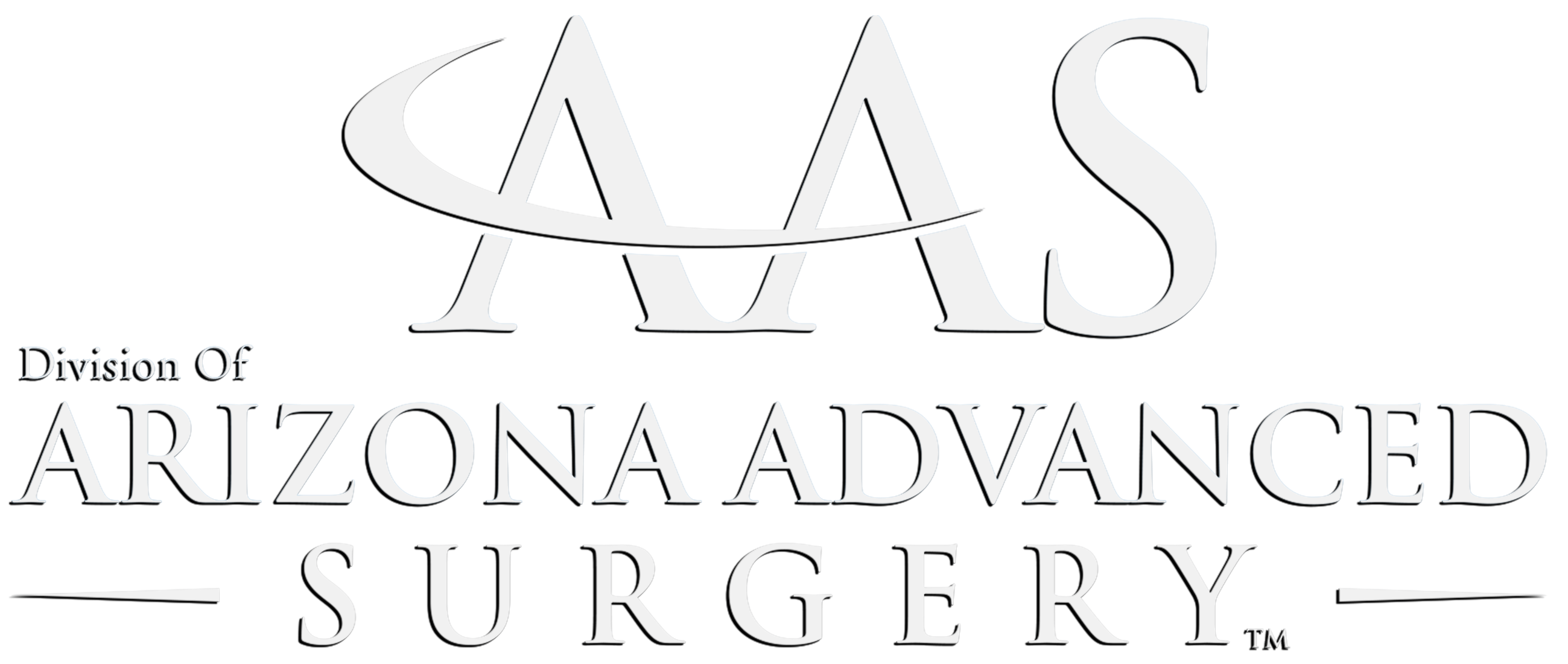Conditions And Treatments
Home / Areas Of Specialty / Pilonidal Cysts And Abscess
Pilonidal Cyst And Abscess
A Pilonidal cyst and abscess is a condition in which involving the skin and subcutaneous tissue near the gluteal & buttock cleft. Most common age of presentation is from the age of 15 to 40 years. Common risk factors of pilonidal disease include obesity, hairs on back, local trauma especially driving long distances and prolonged sitting. Nonetheless, the specific reason for the formation of the pilonidal cyst and sinus is not clear in many cases. It usually leads to the formation of pores also known as hair pits or sinuses in the gluteal cleft. This can progress to abscess or fistula fistula formation.
Symptoms And Signs of Pilonidal Cyst
Its most common presentation is formation of an abscess in the gluteal cleft or surrounding area causing pain and swelling. Skin and local area can become red, infected and lead to drainage of blood or pus. However, in the acute condition it may require drainage by your colorectal surgeon in the office environment or under general anesthesia depending upon the extent of the disease. Over a long-term it can lead to formation of pilonidal sinus or fistula to the surrounding skin.

Diagnosis And Treatment of Pilonidal Abscess and Cyst
The most common way to diagnose pilonidal cyst is by clinical and physical examination of the buttock area. If you notice any abscess or swelling, then you should contact a colorectal surgeon for a possible drainage. Your physician may also prescribe you antibiotics based on the clinical judgment. If the pilonidal cyst becomes extensive with infection or for recurrent cyst, your surgeon may advise you for a wide excision or drainage under anesthesia sedation. In addition, your surgeon may excise the pilonidal cyst and close the incision. But if it is infected then your surgeon may leave the wound open and you may need aggressive wound care after the surgery.
As a last resort for the extensive cysts, you may need a skin flap procedure. After the surgery once the healing is obtained you should keep the area clean and free of any hair to prevent any reoccurrence of the disease. Another key point, is that pilonidal cyst & abscess can recur under many circumstances and may require repeated surgical intervention.
What is a colon and Rectal Surgeon? Is Dr Singh a Board-certified Colorectal surgeon? and where does he perform his procedures.
Colon and rectal surgeons are experts in the surgical and non-surgical treatment of diseases of the colon, rectum, and anus. They have completed advanced surgical training in the treatment of these diseases, as well as full general surgical training. They are well versed in the treatment of both benign and malignant diseases of the colon, rectum, and anus and are able to perform routine screening examinations and surgically treat conditions as and if needed. Dr Singh is a double board certified in Colon and Rectal Surgery and General surgery. His practice is located in Phoenix, Glendale and Scottsdale, AZ.
For more information please visit :
Pilonidal Disease | ASCRS (fascrs.org)
Home – Colon & Rectal Care Center of Phoenix (colorectaldoc.com)
Anal Rectal Abscess and Fistulas – Dr Neeraj Singh MD FASCRS (colorectaldoc.com)
Quiste y absceso pilonidal – Dr Neeraj Singh MD FACS FASCRS (colorectaldoc.com)

